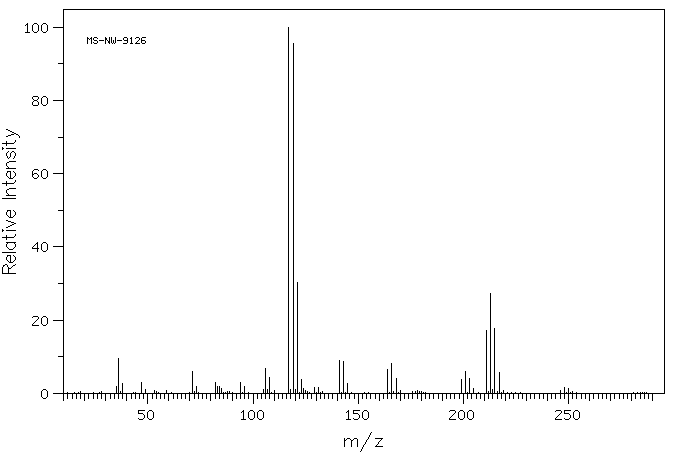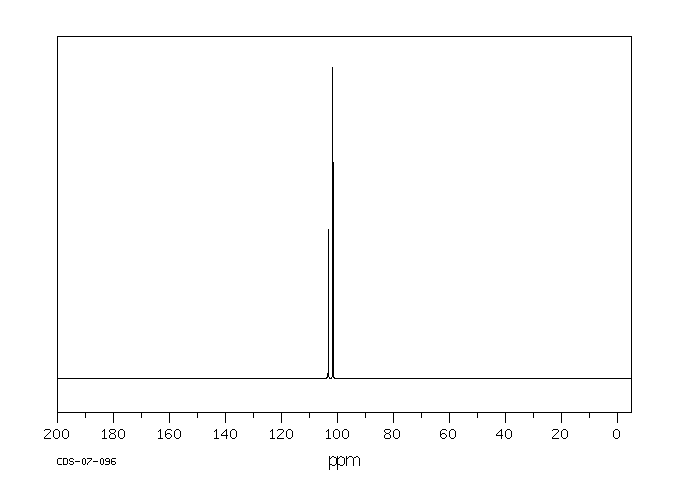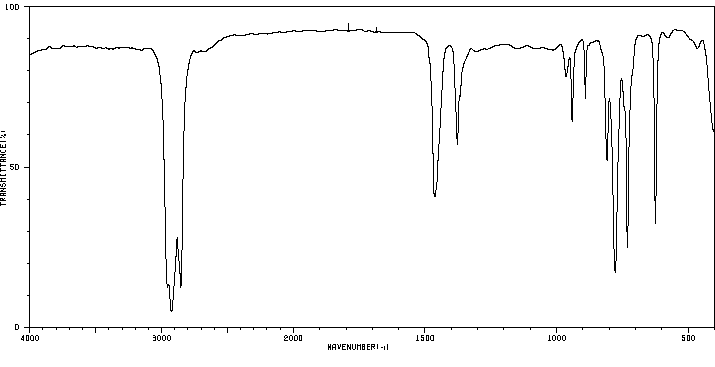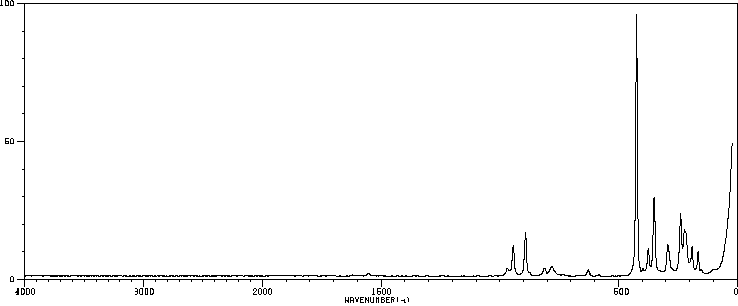八氯丙烷 | 594-90-1
-
物化性质
-
计算性质
-
ADMET
-
安全信息
-
SDS
-
制备方法与用途
-
上下游信息
-
文献信息
-
表征谱图
-
同类化合物
-
相关功能分类
-
相关结构分类
物化性质
-
保留指数:1580;1580
计算性质
-
辛醇/水分配系数(LogP):5.1
-
重原子数:11
-
可旋转键数:0
-
环数:0.0
-
sp3杂化的碳原子比例:1.0
-
拓扑面积:0
-
氢给体数:0
-
氢受体数:0
SDS
反应信息
-
作为反应物:描述:参考文献:名称:Roedig; Voss; Kuchinke, Justus Liebigs Annalen der Chemie, 1953, vol. 580, p. 24摘要:DOI:
-
作为产物:参考文献:名称:Sowing the Seeds of Violence in Heterosexual Relationships: Early Adolescents Narrate Compulsory Heterosexuality摘要:在这篇文章中,我们探讨了早恋青少年对其浪漫关系的描述如何揭示暴力前兆是如何从他们初次经历“异性社交”的那一刻起,就被编织进关系的本质之中的。我们引用了雷奇(Rich,1983)提出的“义务异性恋”概念,将其作为分析这些关系叙述的解释框架,通过来自两个样本(总数n=100)的定性数据——这些样本在种族和收入方面具有多样性——来形成年轻一代观点与理论之间的对话。我们提供了青少年对几个主题的描述以及我们的解读,其中包括将男孩概念化为性掠夺者从而对这种行为进行 normalization,女孩在假设男性具有攻击性时的反应,以及男孩对自己参与关系过程的叙述,这些过程不断强化这些信念和行为。DOI:10.1111/1540-4560.t01-1-00010
文献信息
-
Scalable synthesis of imidazole derivatives
-
PROCESS OF MAKING A CHLORINATED HYDROCARBON申请人:Fukuju Tadahiro公开号:US20120053374A1公开(公告)日:2012-03-01A process of making a chlorinated hydrocarbon through a thermal dehydrochlorination step in which an unsaturated compound represented by the following general formula (2) is obtained by thermally decomposing a saturated compound represented by the following general formula (1). CCl 3 —CCl 2-m H m —CCl 3-n H n (1) CCl 2 ═CCl 2-m H m-1 —CCl 3-n H n (2) (in the above formulas, m is 1 or 2, and n is an integer of 0 to 3.)
-
Composites from PMMA modified thermosets and chemically treated woodflour作者:Betiana A. Acha、Mirta I. Aranguren、Norma E. Marcovich、Maria M. ReboredoDOI:10.1002/pen.10084日期:2003.5The mechanical behavior of composites made from woodflour and a modified thermoset unsaturated polyester resin has been examined. Polymethylmethacrylate (PMMA), a common low profile additive (LPA), was used as the matrix modifier. Woodflour, the reinforcing filler, was used ‘as received’ and was also modified with a commercial alkenyl succinic anhydride (ASA), in order to enhance the compatibility with the resin. The composites exhibited higher flexural and compressive modulus and compressive yield stress than the neat resin, while flexural strength and ultimate strain were reduced. The addition of PMMA to the unfilled thermoset led to a LPA morphology and decreased the flexural modulus, but produced an increment in flexural strain at break, impact energy and toughness of the UP resin. No enhancement in the mechanical behavior of the composites was found when treated woodflour instead of unmodified woodflour was used.
-
Is Obsessive-Compulsive Disorder Caused by a Second-Messenger Imbalance?作者:Donatella Marazziti、Jorge Perez、Giovanni B. CassanoDOI:10.1017/s1092852900008579日期:2001.3
Abstract Although the precise etiologic nature of obsessive-compulsive disorder (OCD), one of the most common psychiatric conditions, is unknown, several findings indicate involvement of the serotonin (5-HT) transporter. Apart from the specific effects of selective 5-HT reuptake inhibitors, other studies show decreased functionality of the platelet 5-HT transporter in OCD. In this report, the authors combine data from two independent studies of patients with OCD, showing both an increased activity of protein kinase type C (PKC) and a decreased activity of protein kinase type A (PKA). The authors propose a unifying hypothesis that OCD might be determined by an imbalance between PKC and PKA, with a prevalence of the former and, more generally, of the phosphoinositide over the cyclic adenosine monophosphate (cAMP) pathway. Should this hypothesis prove correct, the path would be open for new therapeutic interventions in the treatment of OCD.
-
PHOSPHINE PRECURSOR FOR PREPARING QUANTUM DOT AND QUANTUM DOT PREPARED THEREFROM申请人:SK CHEMICALS CO., LTD.公开号:US20200140467A1公开(公告)日:2020-05-07The present invention relates to a phosphine precursor for the preparation of a quantum dot, and a quantum dot prepared therefrom. Using the phosphine precursor for the preparation of a quantum dot of the present invention, a quantum dot with improved luminous efficiency and higher luminous color purity can be provided.本发明涉及一种用于制备量子点的膦前体和由其制备的量子点。使用本发明的膦前体制备量子点,可以提供具有改善的发光效率和更高发光颜色纯度的量子点。
表征谱图
-
氢谱1HNMR
-
质谱MS
-
碳谱13CNMR
-
红外IR
-
拉曼Raman
-
峰位数据
-
峰位匹配
-
表征信息











